We started the Intercollegiate Negotiation Competition ("INC") in 2002 to provide students with an opportunity to compete in mock negotiations and arbitrations. Our aim is to spark a greater interest in negotiation and provide an incentive for learning more about it. Our mission now is to offer young people good learning opportunities to become better negotiators so that they will create new values and settle differences to make a better world.
INC is a growing endeavor, which is supported by its sponsors, judges, teachers and past, present and future participants. Every year we attract more than 100 judges from the Japanese and international bar, Japanese and foreign universities, and internationally acclaimed companies. We hope that the efforts of all those who attend help make INC better as a whole.
Many of our judges are past participants of INC. They have demonstrated their leadership by helping the Leaders' Camp held in every autumn, assisting with practice matches held locally or coaching the students of the participating universities. We believe that their activities play an important role towards our mission: offering young people good learning opportunities to become better negotiators.
The Steering Committee would like to express appreciation to all those who support INC. Our special thanks go to the Sumitomo Group Public Relations Committee for generous and constant support. Without their support INC would have never started or experienced the success that it enjoys today.
Yoshiaki Nomura
Chair
Steering Committee
Intercollegiate Negotiation Competition
Intercollegiate Negotiation Competition is a two-day invitation-based competition, with both a Japanese-language division and English-language division. We conduct arbitration of an international business dispute on the first day and negotiation on the second day. The problem is written by the Steering Committee and deal with international business between Red Corporation in Negoland and Blue Corporation in Arbitria in fictitious world.
In arbitration, each team has to submit its preliminary memorandum and memorandum for counter- argument before the competition date. On the competition date, about 4 hour oral hearing is conducted. The applicable law is UNIDROIT Principles for International Commercial Contracts 2010. In negotiation, the confidential information for Red Corporation and for Blue Corporation is provided to each side. Each participant is assigned a role such as vice president and managers and is expected to conduct negotiations from the perspective of their respective roles.
The competition is supported by lots of practitioners, judges, lawyers and alumini of this competition. Communication with such distinguished persons is one of the attractive features.
For more details, please see Tetsuo Morishita, “The challenge of Intercollegiate Negotiation Competition~A unique moot competition of arbitration and negotiation in Japan” The Japan Commercial Arbitration Association, JCAA Newsletter, No. 26, at 3 (June 2011) .
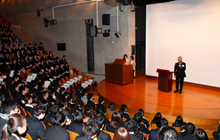
Opening ceremony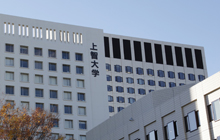
Sophia University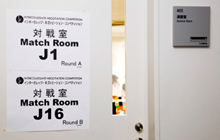
Match Room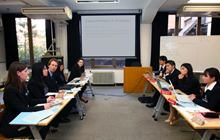
Performance in match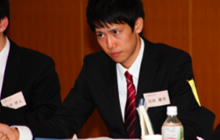
Performance in match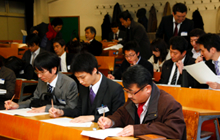
Evaluation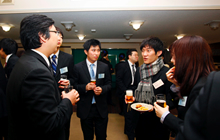
Welcome Party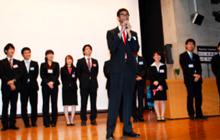
Closing Ceremony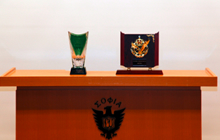
Trophy of Championship and 2nd prize
- Daniel H. Foote (Professor, The University of Tokyo)
- Naoe Fujisawa (Assoiate Professor, Tsukuba University)
- Haruno Hirano
- Tetsuo Morishita (Professor, Sophia University)
- Hatsuru Morita (Professor, Tohoku University)
- Mari Nagata (Professor, Osaka University)
- Yoshiaki Nomura (Professor, Osaka University)
- Kazushige Ogawa (Japan Sports Arbitration Agency)
- Yukihiro Okada (Professor, Doshisha University)
- Hisashi Onogi (Associate Professor, Meiji Gakuin University)
- Nami Thea Onishi (Associate Professor, The University of Tokyo)
- Shozo Ota (Professor, The University of Tokyo)
- Hiroharu Saito (Associate Professor, The University of Tokyo)
- Yoko Tamura (Professor, University of Tsukuba)








